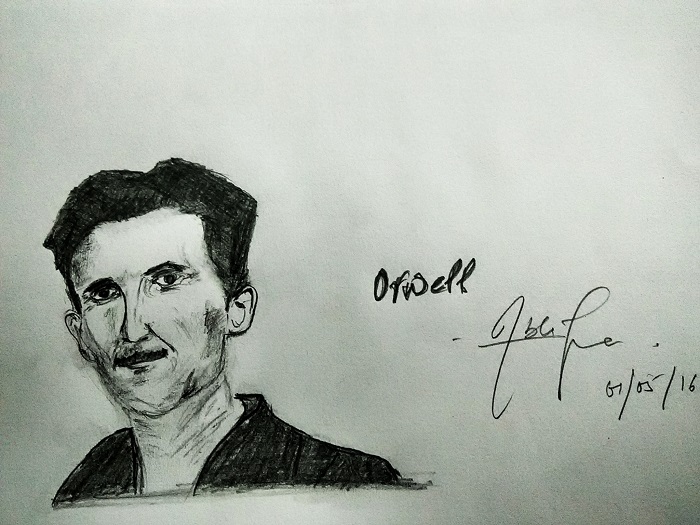फिल्म डॉन में अमिताभ बच्चन ने दो भूमिकाएँ निभायी हैं। उनमें से पहला किरदार नकारात्मक है। डॉन एक बहुत खतरनाक अपराधी है और उसके ही शब्दों में ११ मुल्कों की पुलिस उसका पीछा कर रहीं होतीं हैं। फिल्म शोले में जय और वीरू टुच्चे चोर हैं। फिल्म डर में शाहरुख़ खान ने एक बेहद संगीन और जुनूनी आशिक़ का किरदार निभाया है। फिल्म स्पेशल छब्बीस में अक्षय कुमार ने एक ठग का किरदार निभाया।
ये सब मैं आपको क्यूँ बता रहा हूँ? इस से पहले कि मैं उसका जवाब दूँ, मैं एक बात और बता देता हूँ। अभिनेता प्राण शायद अब तक के सबसे हरफनमौला कलाकार रहे हैं। कहा जाता है कि उनके नकारात्मक किरदारों को इतनी नफरत मिली कि एक वक़्त पर दर्शकों को यकीन हो गया कि प्राण निजी ज़िन्दगी में भी वही हाथ में चाबुक लेकर घूमने वाले पूंजीवादी हैवान हैं जो गरीब किसानों का खून पीता है। लोगों ने अपने बच्चों का नाम प्राण रखना बंद कर दिया।
वहीं, इनके पहले मैंने जिन लोगों की बात की है, उनको बेशुमार प्यार मिला। फिल्मों में नकारात्मक किरदारों के मर जाने पर लोग खुश नहीं हुए। अक्षय कुमार का किरदार जब सीबीआई को चकमा देकर भाग जाता है तो हमारी ख़ुशी मुस्कराहट बनकर चेहरे पर आ ही जाती है। परेशान मनोज बाजपेयी के किरदार से किसी को कोई सहानुभूति नहीं होती। ऐसे सभी नकारात्मक किरदारों को जिनको ऐसे अभिनेता निभाते हैं जो आमतौर पर नायक के रूप में पसंद किये जाते हैं, उनको बेशुमार प्यार मिलता है और उस किरदार से एक अनोखी सहानुभूति होती है। वहीं, रंजीत साहब का चेहरा सामने आते ही लड़कियों को देखकर लार टपकाने वाले बलात्कारी की छवि हमारे सामने उभर कर आती है।
कहने का मतलब ये है कि प्यार अंधा होता है। वो बुद्धि के सामने एक काला पर्दा लगा देता है जिसके आर पार कुछ नहीं दीखता। एक फिल्म हमारे पड़ोसी राज्य तमिल नाडु में भी चल रही है। श्रीमती शशिकला ने राज्य की महारानी बनने की पूरी तैयारी कर ली थी। सर्वोच्च न्यायालय को ये बात हजम नहीं हुई और जैसे वो हर जगह रायता फैला देते हैं, यहाँ भी फैला दिया। अब शशिकला कारावास में हैं और उनके सारे सपने सपने ही रह जायेंगे। सर्वोच्च न्यायालय ने एक और इंसान को दोषी ठहराया है जो अब इस दुनिया में नहीं रहीं और लोगों को उनसे बहुत प्यार है। यहाँ पर आप संजय लीला भंसाली के बाजे और ढोल को पार्श्व संगीत समझ सकते हैं। मैं नायक-खलनायक-नायक-खलनायक जयललिता उर्फ़ अम्मा को चित्रपट (screen) पर ला रहा हूँ।
मज़े की बात ये है कि जो भी सुप्रीम कोर्ट ने कहा वो हम सब जानते थे। जनता से कुछ छुपता नहीं। फिर भी हम अम्मा से बहुत प्यार करते हैं। एक प्यार जस्टिस काटजू का भी है। मैं उसकी बात नहीं कर रहा। मैं अम्मा से अम्मा वाले प्यार की बात कर रहा हूँ। अम्मा के पाप और शशिकला के पाप बराबर के हैं फिर भी हम दीवाने पागल, अम्मा के पीछे पागल और शशिकला को हर तरह की गालियों से नवाज़ रहे हैं। अभी तो ऐसा ही लग रहा है कि अम्मा दरअसल अम्मा नहीं थीं बल्कि एक छोटी सी मासूम बच्ची थीं जिनको पगली बुढ़िया शशिकला ने बहका दिया। अम्मा के सौ खून माफ़।
ये प्यार है। अँधा और बड़बोला। और इस प्यार के क्या क्या उपयोग हैं, ये आप पन्नीरसेल्वम से पूछिये जिनकी इष्ट देवी आजीवन (और ख़ास तौर इन दिनों) अम्मा रहीं हैं। अम्मा अपरम्पार हैं। पन्नीरसेल्वम की दशा इस वक़्त ऐसी है कि कोई आज अगर उनसे अम्मा के कुकृत्यों के बारे में पूछे तो वो शायद यही कहेंगे कि चोरी तो भगवान कृष्ण ने भी की थी। अम्मा ने भी रुपये रुपी माखन चुराए, ये उनकी अधेड़ लीला थी।
ये प्यार है। अँधा और बड़बोला। वही प्यार जिसकी बदौलत चंद बेईमान लोगों ने इस देश को गुलाम बना रक्खा है। ये भीड़ का प्यार है। वो भीड़ जो भेड़ों से बदतर है।
ये प्यार है। अँधा और बड़बोला। वही प्यार जिसकी बदौलत उत्तर प्रदेश में एक बाप और बेटे ने राज्य को नाटक कंपनी बना दिया है और एक बहन जी ने विकास के नाम पर जनता के हाथ में हाथियों की मूर्तियां थमा दीं।
ये प्यार है। अँधा और बड़बोला। वही प्यार जिसकी बदौलत पश्चिम बंगाल में दीदी को हर दूसरा इंसान माओवादी दीखता है और हर पहला एवं तीसरा मोदीवादी।
ये प्यार है। अँधा और बड़बोला। वही प्यार जिसकी बदौलत लालू यादव की भैंसों का चारा कभी ख़त्म नहीं होता।
ये प्यार है। अँधा और बड़बोला। वही प्यार जिसकी बदौलत राज ठाकरे नाम का एक टुच्चा गुंडा महाराष्ट्र में मुख्यमंत्री के कक्ष में बैठ कर फ़िल्मी कलाकारों का दमन करता है।
ये प्यार है। अँधा और बड़बोला। वही प्यार जिसकी बदौलत हैदराबाद में एक और लफंगा अकबरुद्दीन ओवैसी हिंदुस्तान की धरती से हिंदुओं को लुप्त कर देने की बात करता है और हज़ारों की भीड़/भेड़ तालियों से उसका अभिनन्दन करती है।
ये प्यार है। अँधा और बड़बोला। वही प्यार जिसकी बदौलत पैसों के लिए ईमानदार इंसानों को और विजय माल्या के लिए बैंकों को कतार में खड़ा कर दिया जाता है।
ये प्यार है। अँधा और बड़बोला। वही प्यार जो आज भी हर फिल्म पर बीइंग ह्यूमन की टीशर्ट पहनकर ५०० करोड़ सलमान खान के हाथ में रख कर कहता है – “आई लव यू सलमान !”
ये हमारा प्यार है। हमारा इश्क़। बिना शर्त, अप्रतिबंधित, और निःस्वार्थ। हमारा जूनून। ये डर के शाहरुख़ खान वाला प्यार है जो अपने प्यार के लिए किसी का खून कर सकता है, प्यार जो हर दिन एक सनके आशिक़ की तरह अपने ही देश का बलात्कार करता है और फिर गर्भपात कराता है।
आईये इस बार वैलेंटाइन’स डे के अवसर पर इस प्यार को और अंधा, थोड़ा और बड़बोला बनायें क्यूंकि किसी बड़े शायर ने कहा है – “ये इश्क़ नहीं आसां, आग का दरिया है, आँख मूँद कर जाना है।”




